
Publications of Green, Innovative and Resilient Regions (2021-2024)
Find the latest publications from this Nordic thematic group.
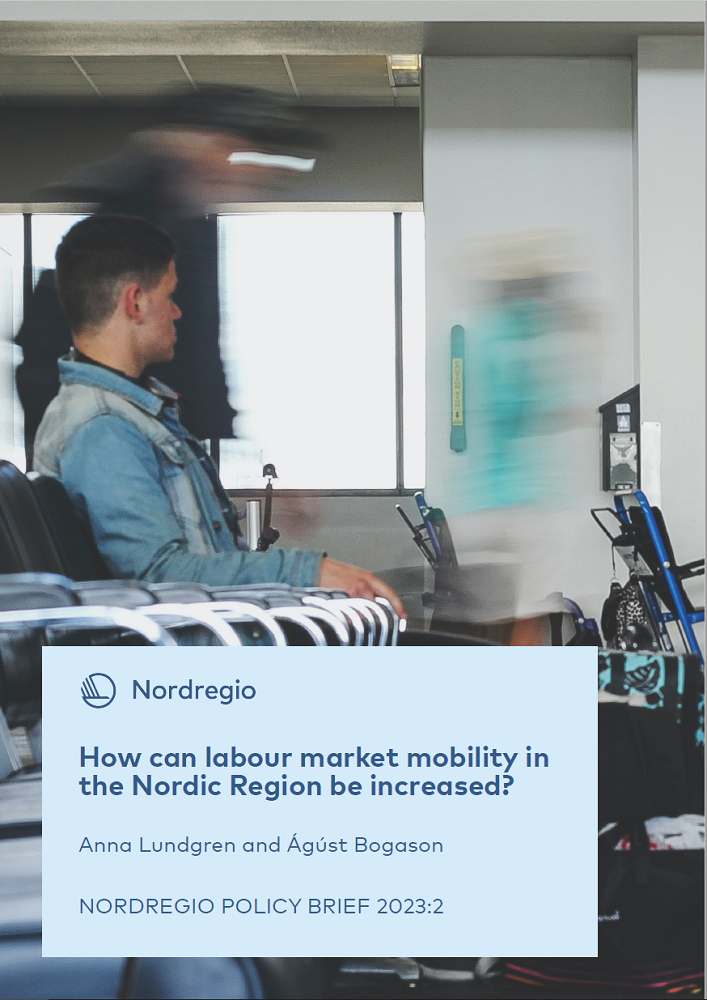
Policy brief 2/2023: How can labour market mobility in the Nordic Region be increased?
In this policy brief, we provide recommendations to the Nordic policymakers that would ultimately help achieve the Nordic vision – to be the most sustainable and integrated region in the world by 2030.
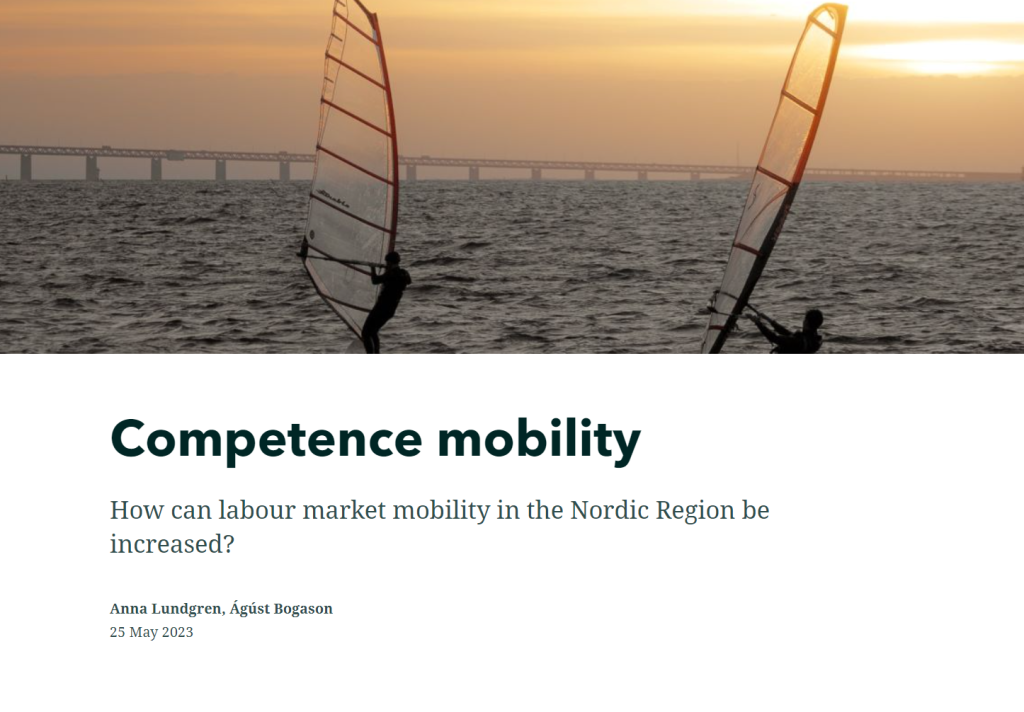
Storymap: Competence mobility
This story map examines why people choose to work in another Nordic country and why not. Welcome to explore facts about the Nordic labour market mobility and stories of people experiencing Nordic labour market mobility in Greater Copenhagen, Greenland and Vestfold Telemark.
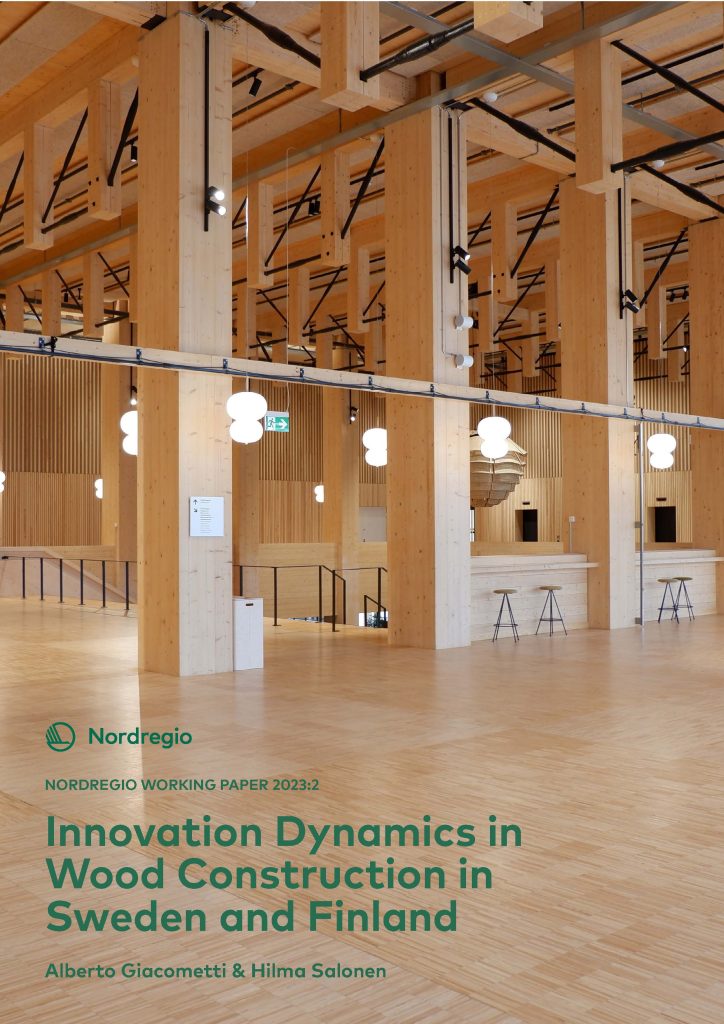
Working paper 2/2023: Innovation Dynamics in Wood Construction in Sweden and Finland
The rapid developments in wood-construction and the huge expectation built around the potential of ‘greening’ the construction sector by replacing concrete and steel with wood provide our empirical ground to study the drivers of innovation. This publication provides the results of a case study on the construction sector transformation process triggered by the emergence of wood-based construction in Sweden and Finland, particularly of multi-storey buildings.
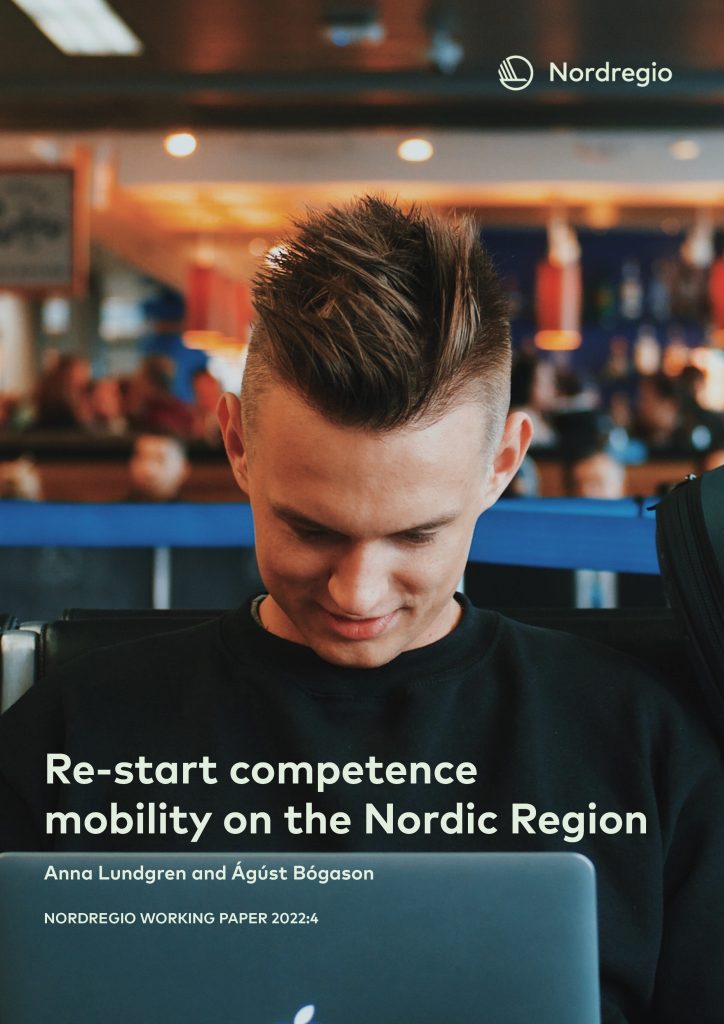
Working paper 4/2022: Re-start competence mobility in the Nordic Region
In this working paper, we share the latest data on labour market mobility across national borders in the Nordic Region in the form of both migration and commuting. We also present findings from a review of current literature on labour market mobility in the Nordic Region and present an analytical framework for exploring potential improvements to it.
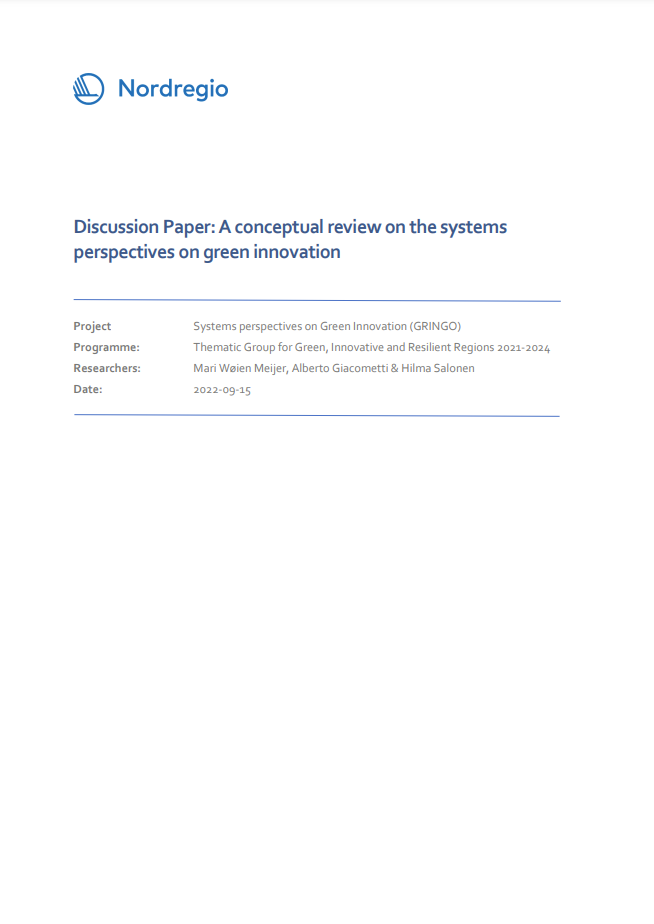
Discussion paper on ‘The Systems Perspectives on Green Innovation’
The newly published TGC Discussion paper A conceptual review on the systems perspectives on green innovation deals with the theoretical foundations and empirical approaches for studying green innovation. This discussion paper is meant as an open invitation to discuss methodological approaches and the implications of the green transition for innovation policy. We welcome comments and suggestions with any new perspectives!
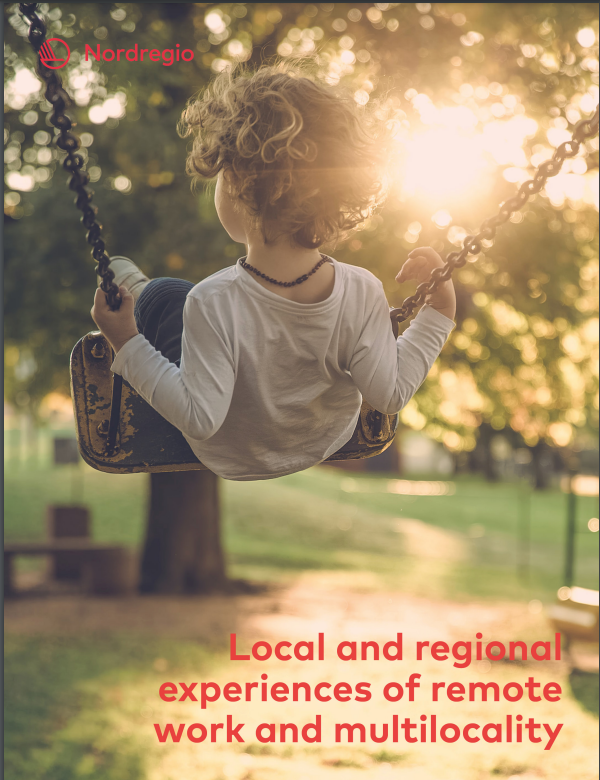
Report 2/2022: Remote work - Local and regional experiences of remote work and multilocality
This report deepens our understanding of how increased remote work is affecting Nordic municipalities and regions. Survey results show that remote work is generally seen in a positive light, generating opportunities for long-term economic growth, maintaining public services, and revitalising the community.
There is great potential for Nordic cooperation in developing strategies to address the challenges and make the most of the opportunities associated with increased remote work for Nordic regions and municipalities. Collaboration at both levels could be incredibly valuable in strengthening both national and local efforts to make the most of the opportunities increased remote work offers for Nordic people, places, and planning in the long term.
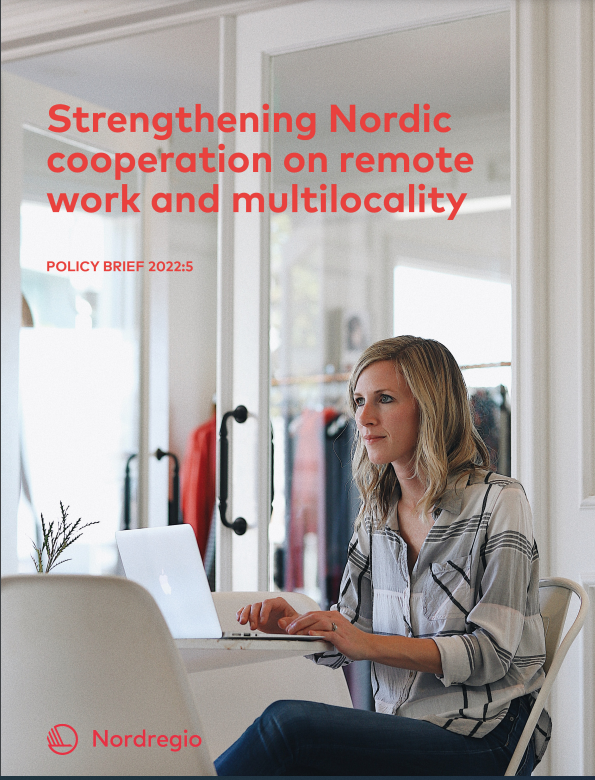
Policy Brief 2022: Strengthening Nordic cooperation on remote work and multilocality
The experiences of remote work during the pandemic have been fairly similar in the five Nordic countries. Similar trends are also evident, though to differing degrees, with respect to the effects on different places throughout the region.
The most notable differences between the countries relate to the regional policy responses, and it is perhaps here that the greatest potential for Nordic added value emerges.

Report 1/2022: Remote work - Effects on Nordic people, places and planning 2021-2024
This report is the first outcome of the project Remote work: Effects on Nordic people, places and planning 2021-2024. This report provides a broad understanding of the current situation (May, 2022) regarding remote work in the Nordic countries, particularly in relation to potential urban and regional development effects. It provides insight into emerging trends in the countries based on Nordic research, statistical data, and stakeholder interviews. Further, it considers the national level policy frameworks that “set the stage” for the development of remote work practices in the Nordic countries.
Our findings suggest that higher levels of remote work are likely to be maintained in the long term in all Nordic countries, at least to some degree. Importantly, however, there is little evidence to support a large-scale shift towards a “remote first” mindset among Nordic workers or workplaces. This means that, for the majority of workers and workplaces, the most likely scenario will be some form of hybrid arrangement. The effectiveness of these arrangements in promoting wellbeing and quality of life for workers, as well as the extent to which collaboration and innovation thrive under hybrid conditions, will both be key factors in determining whether remote work remains more common in the long term.

Publications of Innovative Regions in the Nordics (2017-2020)
Publications derive from the projects under the Nordic Thematic Group for Innovative and Resilient Regions 2017-2020. The research contains different perceptions and perspectives of economic and social resilience in the Nordic region. Publications give also knowledge of how authorities implement digital strategies, what role digitalization plays in the context of business development, and how it changes the nature of the jobs and the public services. Finalised Reports and shorter Policy Briefs are available here as soon as they are published. Find ongoing projects under "Projects".
Click on the titles to find the whole publications.
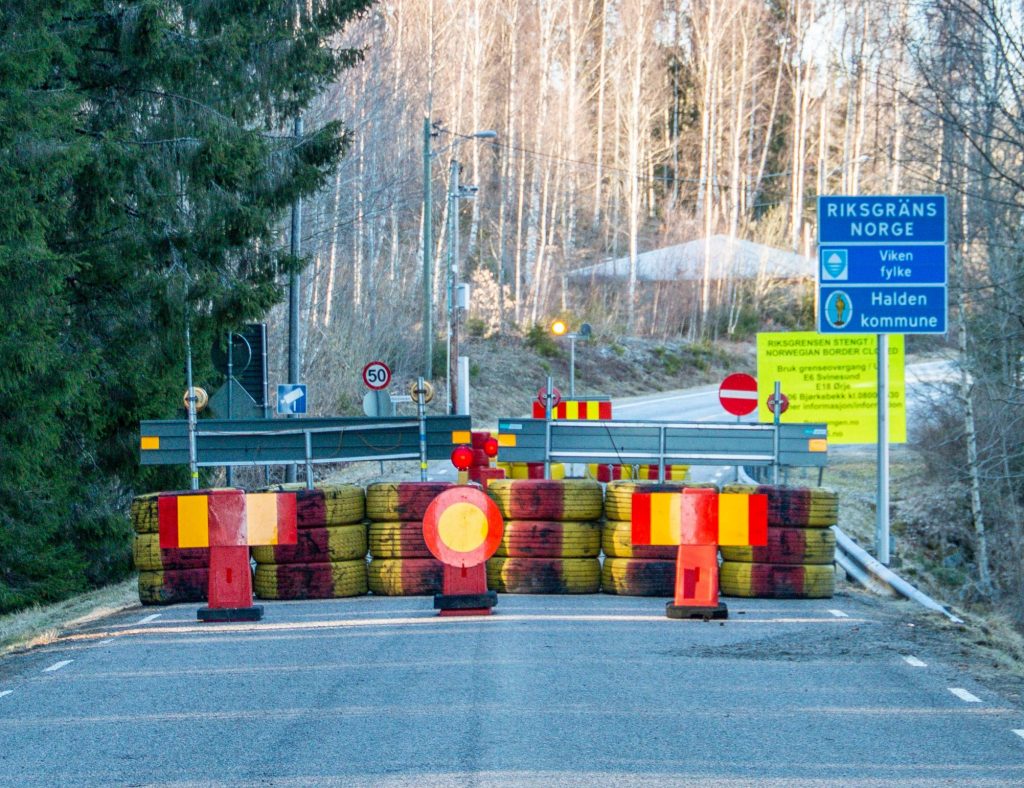
Nordic border communities in the time of COVID-19
This policy brief gives a brief overview of the impact of border restrictions on border communities during the first nine months of the COVID-19 pandemic. It also provides concrete recommendations to cross-border committees, border municipalities, national authorities and Nordic organisations on how to strengthen the cross-border collaboration after the pandemic.
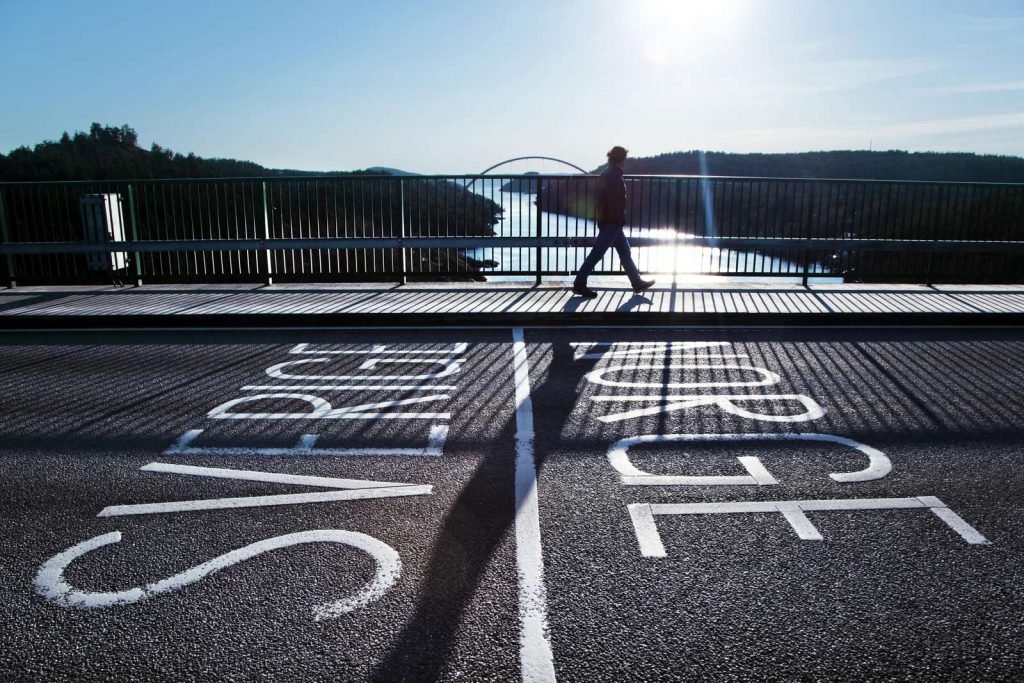
Closed borders and divided communities: status report and lessons from Covid-19 in cross-border areas
The situation that has unfolded due to the COVID-19 pandemic has exposed the fragility of Nordic co-operation. In this status report, we look at the situation in border communities following the closing of the border, and what this may tell us about the state of Nordic co-operation – Vision 2030 for which includes integration.
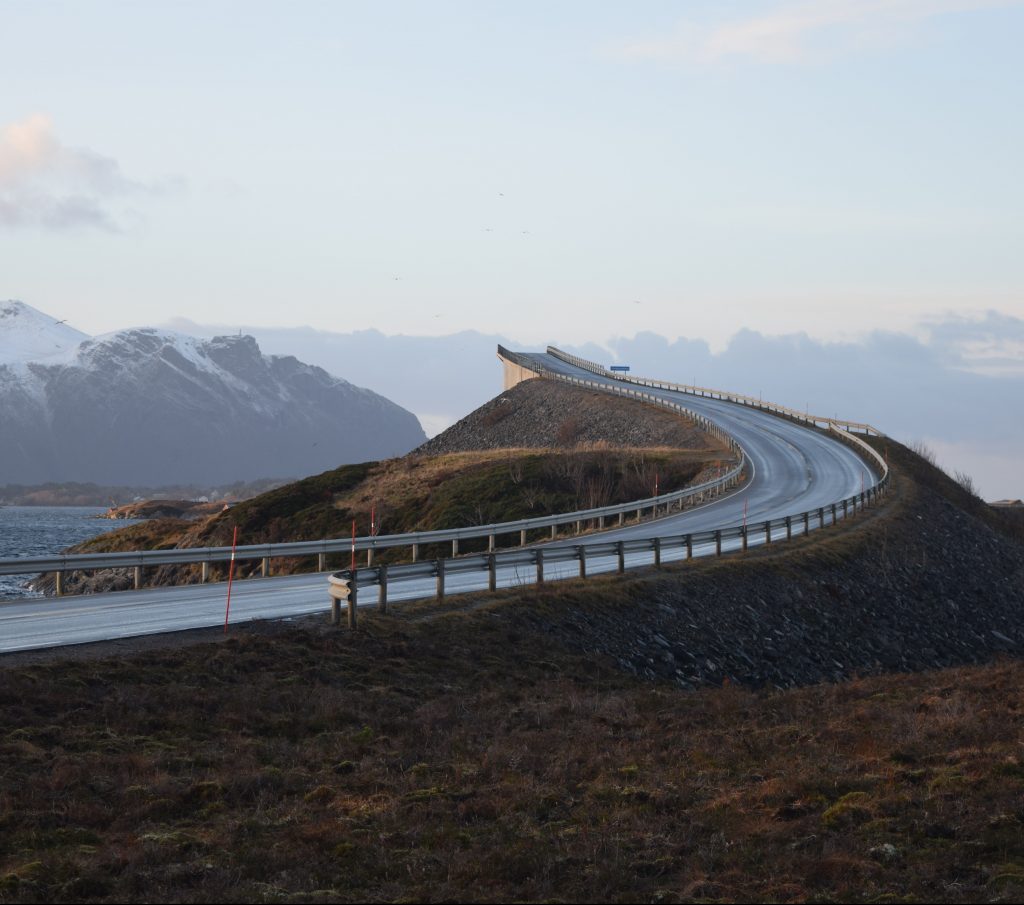
TG2 Innovative and Resilient Regions – Roadshow report
This document reports on the Nordic TG2 Roadshow, which was commissioned by the Nordic Thematic Group for Innovative and Resilient Regions. The Nordic Thematic Group for Innovative and Resilient Regions 2017–2020 (TG2) was established by the Nordic Council of Ministers as a part of the Nordic Co-operation Programme for Regional Development and Planning 2017–2020. The TG2 group was organised under the Nordic Council of Ministers’ Committee of Civil Servants for Regional Affairs, and Nordregio has acted as Secretariat for the thematic groups.

The final report 2021: The Nordic Thematic Group for Innovative and Resilient Regions 2017–2020
This report summarises the work and results of the Nordic thematic group for innovative and resilient regions (TG2) in 2017–2020. The Nordic thematic group for innovative and resilient regions 2017–2020 (TG2) was established by the Nordic Council of Ministers and is a part of the Nordic Co-operation Programme for Regional Development and Planning 2017–2020. Three Nordic thematic groups were established for the four-year period: Innovative and resilient regions, Sustainable rural development, and Sustainable cities and urban development. The thematic groups have been organised under the Nordic Council of Ministers’ Committee of Civil Servants for Regional Affairs, and Nordregio has acted as the secretariat for the thematic groups.
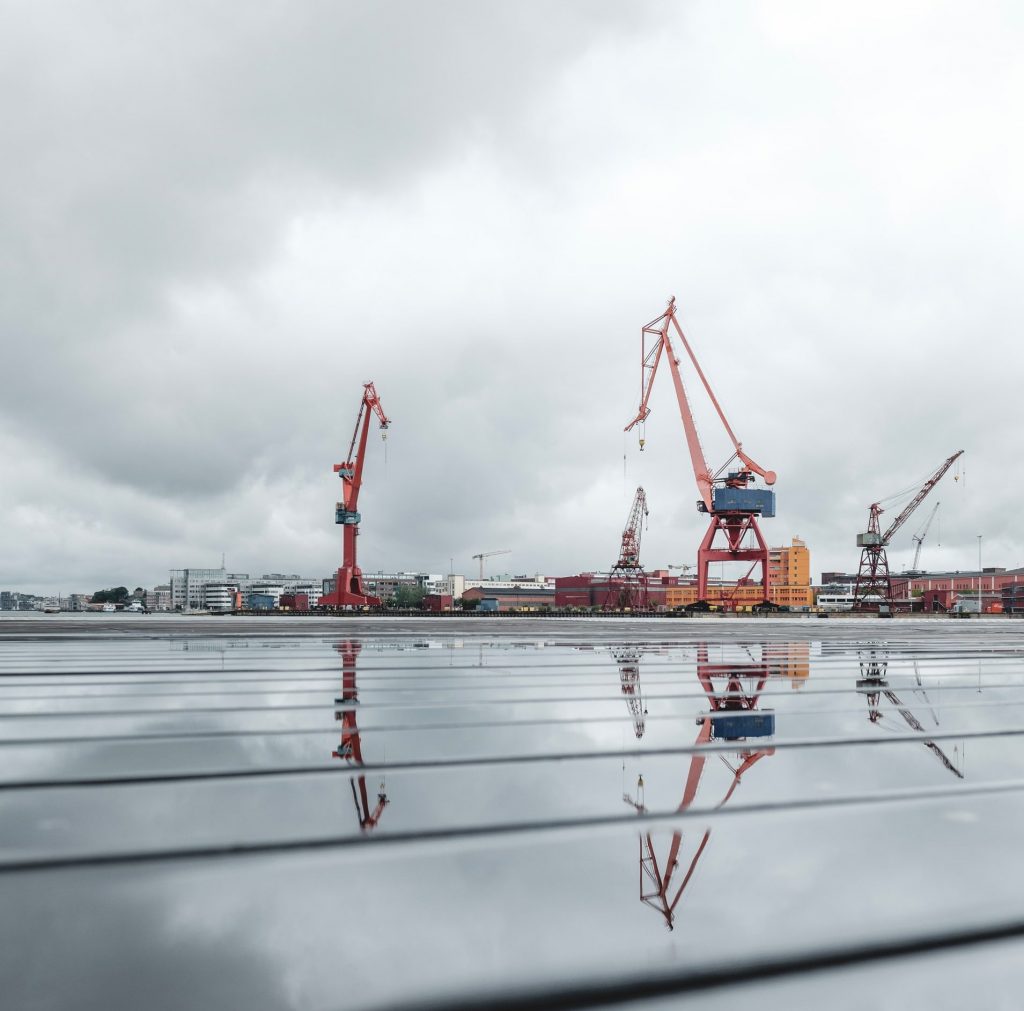
Working paper 2020: Synergies between Nordic studies on resilience, digitalisation, smart specialisation and skills development
This Working paper highlights the synergies between Nordic studies on resilience, digitalisation, smart specialisation and skills development. Regional (economic and social) resilience determines how capable the regional economies are to cope with change (negative or positive shocks or stress) and continue to develop. Regional resilience is achieved through regional actions that turn global perspectives into strengths and opportunities. Generally speaking, regional resilience is a desirable place to be in, and this should be supported by all different policies and regional actions.

Policy brief 2020: Matching the missing links – Skills development in Nordic regions
This Policy Brief takes a closer look at capacity building of skills across Nordic regions. It draws shared learning points from the steps taken by regional actors faced with trends such as increasingly urban and globalized societies, ageing populations and the fourth industrial revolution. Looking at regional skills ecosystems, it explores the development of distinctive skills bases as a key to handling future challenges and building resilient societies.

Report 2020: Skills Policies – Building Capacities for Innovative and Resilient Nordic Regions
Skills is a topic which is increasingly gaining attention from policymakers. The current Covid-19 pandemic, and its consequences for the Nordic economy and labour market, are now expected to increase interest in skills issues even further. This report highlights who the actors involved in the regional skills eco-systems are. It also identifies the main enabling and hampering factors involved in working with skills assessment and anticipation, skills development, and skills governance.

Policy brief 2020: Strengthening regional resilience through adaptive collaboration: A case study on the fisheries co-management Northern Bohuslän
This policy brief examines how co-management arrangements within small-scale fisheries can play a key role in enhancing sectoral and regional resilience. Despite major challenges, “multi-stakeholder collaborations” – such as co-management – demonstrate the potential for innovative knowledge transfer and strategic adaptation processes within the fisheries sector. The focus here is on Co-management Northern Bohuslän (Samförvaltning Norra Bohuslän), which promotes sustainable local fisheries and blue growth on Sweden’s west coast.
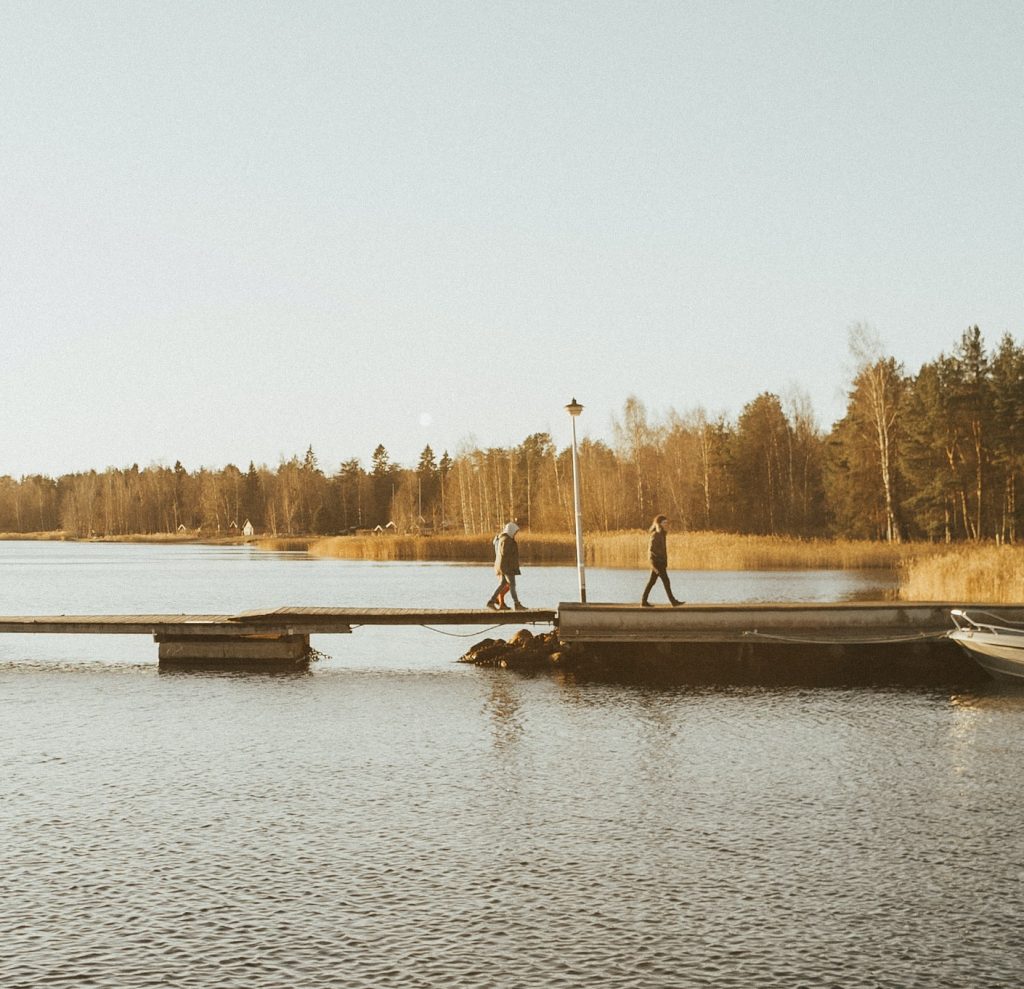
Report 2020: Skills supply and governance in the Bothnian Arc cross-border region
This study investigates the state of play of skills supply and demand in the Bothnian Arc cross-border region. Empirical evidence is gathered to shed light on some of the reasons behind the present and future challenges in meeting the demand for skills supply.

Working Paper 2020: Kompetensbehov för Smart specialisering i Värmland
I Region Värmland pågår arbetet med att ta fram en ny regional utvecklingsstrategi, en kompetensförsörjningsstrategi och en ny strategi för smart specialisering.
Nordregio har fått i uppdrag av Region Värmland att göra en genomlysning av kompetensförsörjningsbehov inom områdena för Värmlands forsknings- och innovationsstrategi för smart specialisering som löper under perioden 2015 – 2020.

Policy brief 2020: Rural perspectives on digital innovation: Experiences from small enterprises in the Nordic countries and Latvia
This Policy Brief explores strategies to overcome the digital divide, with a focus on increasing the competitiveness of small rural enterprises through digital innovation. It is based on a larger project which included desk-based research, a series of workshops held in rural locations around the Nordic-Baltic Region and a webinar series.

Report 2020: Rural perspectives on digital innovation: Experiences from small enterprises in the Nordic countries and Latvia
The baseline study explored the nature of digital transformation in rural areas and reflected on opportunities and challenges for small and medium-sized enterprises (SMEs) in rural areas in each of the Nordic countries and in Latvia.
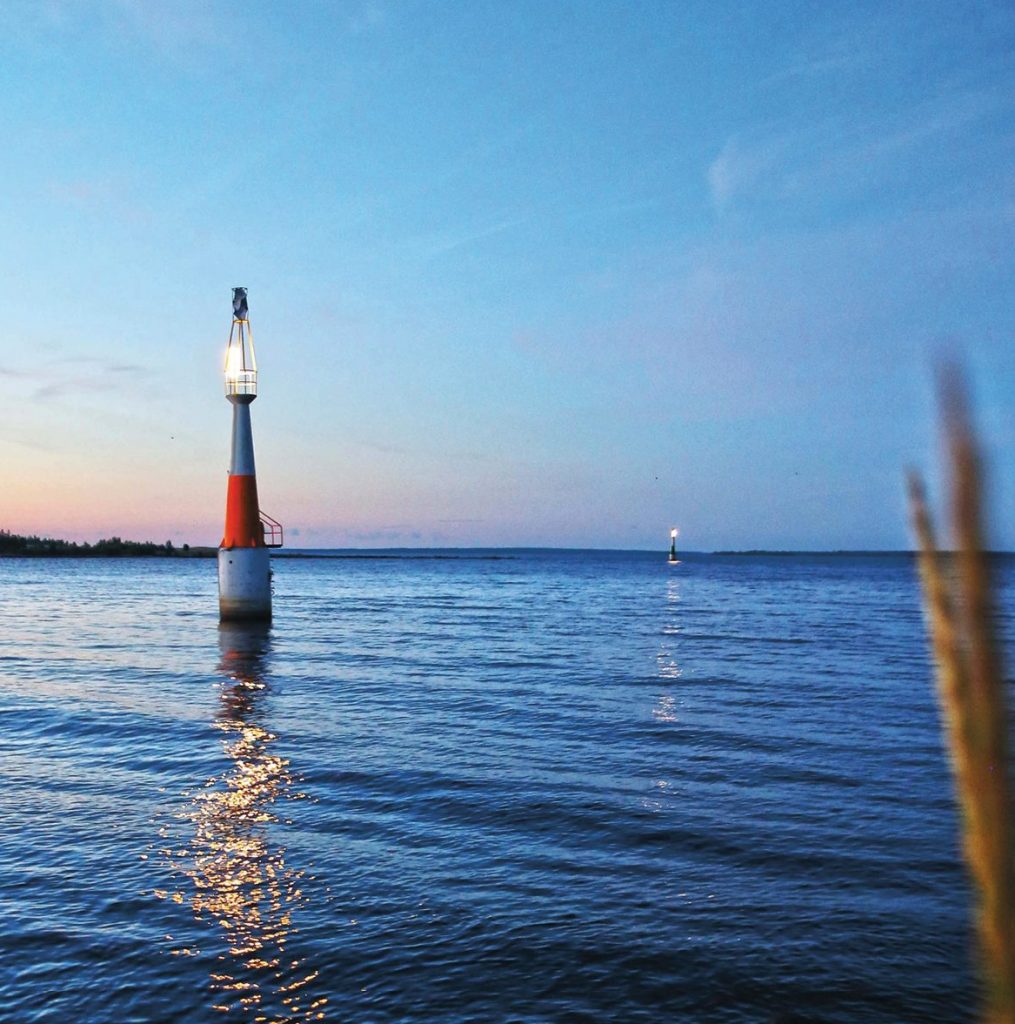
Report 2019: Social and Economic Resilience in the Bothnian Arc Cross-Border Region
What global and local risks and long-term challenges is the Bothnian Arc cross-border area exposed to? And how can societies and economies in this area anticipate and respond to them to ensure resilient long-term development paths?
This report provides a background overview of resilience and the methodology applied. Moreover, the report provides a snapshot of the resilience situation in the Bothnian Arc. The data and information gathered were collected by interviewing local people both in Swedish and Finnish sides.
The report is written by Nordregio together with the Bothnian Arc association.

Policy Brief 2019: Implementing Smart Specialisation strategies in Nordic regions
Smart Specialisation (S3) as a policy tool has quickly been adopted across the European Union and in the Nordic countries, but the implementation of S3 is not uniformly adopted. What is the added value of smart specialization implementation in Nordic regions?
So, this policy brief explores the adoption of Smart Specialisation (S3) strategies in the Nordic Region. Strengthened governance structures, clear ownership to S3 processes, and understanding S3 as a process in its own right are some of the key recommendations. The study also explores if there is a Nordic Model of S3.

Report 2019: Is the coast clear? The role of digitalization for enabling blue growth in the cross-border region of Svinesund
Digitalization is impacting various facets of society and holds great potential in radically changing the ways businesses are operating. Despite these radical changes, little has been said about the impact of digitalization on micro-, small and medium-sized businesses within the marine sector.
To close this gap, this complimentary report is a follow-up study of Randal and Berlina’s report Governing the digital transition in Nordic regions: The human element (2019).
This study explores what role digitalization plays in the context of business development and growth in the marine sector in the Svinesund area; the different challenges and opportunities that surface in this context; and what role the Svinesund mega-region may play for the future of blue growth.
The study on digitalization and blue growth has been developed on behalf of the Nordic thematic working group’s member Svinesundskommittén (The Svinesund committee).

Policy Brief 2019: Governing the Digital Transition in the Nordic Regions
The Nordic countries are often positioned as digital front-runners in the European and global contexts. Digitalization is changing the nature of the business, jobs, and the provision of public services. Rapid digitalization and technological change require governments and organizations to introduce proactive measures to embrace new digitalization opportunities.
This policy brief explores the local and regional dimension of digital transformation. It examines the opportunities and challenges that Nordic regions are facing related to digitalization and highlights some lessons learned from five Nordic regions implementing digitalization agendas. It also sets out key recommendations for creating an enabling environment for digitalization work at different governance levels.

Policy Brief 2019: Building Economic and Social Resilience in the Nordic Regions
Building regional resilience is vital in an interconnected global economy where external events have a significant impact on regional and local communities. Resilience thinking gives regions the possibility to anticipate and respond to unexpected events.
This policy brief examines different types of risks and a series of factors that help to build resilience in the Nordic regions.

Report 2019: Governing the digital transition in Nordic Regions: The human element
This in-depth study explores digitalization in Nordic regions by studying how local and regional authorities are implementing national and regional digital strategies.
Further, it seeks to identify the different types of actors (public sectors, companies, and civil society) and actor constellations that are key in the digital transformation of Nordic regions.
The study explores how the Nordic regions are dealing with the challenges and opportunities related to digitalization and aims to identify the strongest potential for knowledge sharing and collaboration at different levels.
In the study, five regional Nordic case studies were chosen for in-depth analysis: Southern Denmark (Vejle), Tampere Region, Reykjavík, Finnmark (Vardø) and Skåne Region (Helsingborg).

Report 2019: The status, characteristics, and potential of smart specialization in Nordic Regions
This report attempts to create a foundation for understanding the added value of smart specialization in the Nordic context and focuses on the cohesiveness and complementarity between the different tiers of government, paying particular attention to the dialogue between the national and regional levels to identify factors that enable or impede the implementation of smart specialization.
It also addresses the role of smart specialization in realizing the green economy and looks at regional commonalities in the pursuit of identifying a Nordic model of smart specialization.
This report is prepared on behalf of the Nordic Thematic Group for Innovative and Resilient Regions 2017–2020, under the Nordic Council of Ministers Committee of Civil Servants for Regional Affairs.

Report 2019: Regional Economic and Social Resilience: An Exploratory In-Depth Study in the Nordic Countries
How capable are local and regional economies of recovering from global and local shocks and threats and ensure resilient long-term development paths?
Answering this question was the challenge of the Nordic Thematic Group on Innovative and Resilient regions, set by the Nordic Council of Ministers.
Thus, from 2017 to 2018, an exploratory in-depth study was conducted on economic and social resilience in the Nordic regions.
The empirical research included a close examination of a variety of threats as well as factors driving resilience in regions in all five Nordic Countries.